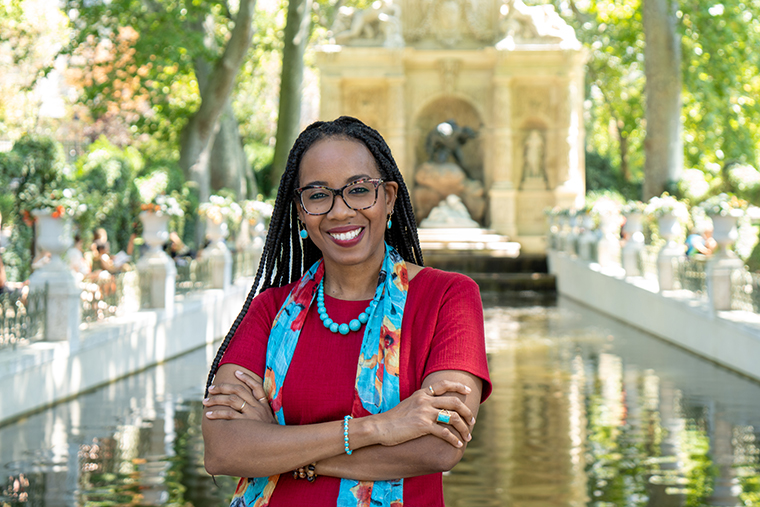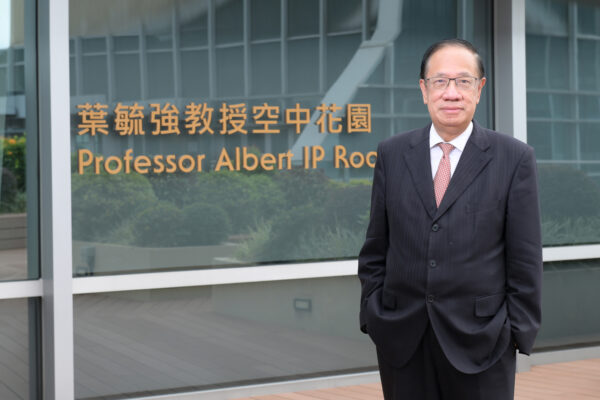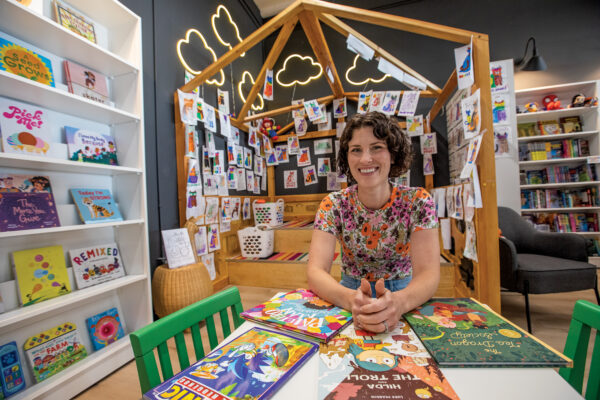In October 2021, Andia Augustin-Billy, MA ’09, PhD ’15, became the first Black faculty member to receive tenure at Centenary College of Louisiana in its 196-year history, a move that made her full of gratitude and reflection.
It was important because Black women are severely underrepresented among tenured faculty in the country. “There has to be a concerted effort to ensure diversity in academia,” Augustin-Billy says. “I was at WashU when Michael Brown was fatally shot. I remember Chancellor Mark Wrighton and members of the administration like Adrienne Davis engaged in listening sessions and discussions. In my view, WashU did listen and attempt to implement meaningful change. Now, multiple centers exist around issues of diversity. I often speak of WashU as an example of an institution whose actions seek to match its vision statement.”
Augustin-Billy pursued graduate studies at WashU upon learning that Julie Singer, professor of French in Arts & Sciences, was looking for bright students to build a program. “I relished my time at WashU,” Augustin-Billy says. “I was actively involved in the French department, the Black Graduate Council and the Graduate Student Senate.”
Augustin-Billy maintains her passion for making a difference as an associate professor of French and Francophone studies at Centenary College. She stands out among her peers for her unique perspective as a woman born in the predominantly Black country of Haiti.
Each fall, she takes incoming freshmen outside the classroom to learn about the Black experience in Paris. She also takes students to Haiti each year as part of her “Killing with Kindness” course, which examines the “unintended consequences of aid and how one could adopt a culturally sensitive approach.”
“I ask students to bring books to build a library,” Augustin-Billy says. “Books shaped me and saved me when I was in Haiti. I want to provide the opportunity to at least one student in Haiti to escape, to imagine and to free themselves through the power of literature.”
‘I want my children to grow up in a country where they know they belong, and it often starts with the classroom. Do you feel appreciated as a thinker, as a burgeoning scholar? Does your voice matter? These questions motivate me as I step into the classroom.’
Andia Augustin-Billy
For her, Haiti is a symbol of what it means to fight for freedom, rather than its poverty-stricken depiction in the U.S. media. “I grew up feeling free in my mind,” she says. “I grew up feeling that I stood on the shoulders of amazing men and women.”
As the second oldest of four children, she proudly stands on the shoulders of her missionary parents. She credits her mother for teaching her what it means to be resilient. “My mother personifies excellence, grit and determination,” Augustin-Billy says. “She has gifted me the desire to teach. There is no other person whom I’ve admired, who’s shaped me since my childhood, like my mother.”
Now, as a mother herself of two young sons, Augustin-Billy is even more motivated to impact future generations.
“Being a mother has sharpened my sensibility toward empowering young Black men and women in particular,” she says. “I want my children to grow up in a country where they know they belong, and it often starts with the classroom. Do you feel appreciated as a thinker, as a burgeoning scholar? Does your voice matter? These questions motivate me as I step into the classroom.”



